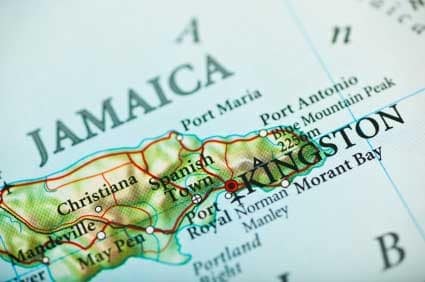
"Nutrition is much more than just getting a belly full," said Patricia Thompson, MSc, RdN, SNS, during an interview on Smile Jamaica, a popular morning TV show in her Caribbean country. Academy member and founder of the Jamaica Island Nutrition Network, Thompson is working to make her dream come true: that any child in need can always receive a healthful breakfast at school.
Jamaica's Ministry of Education now provides lunch to approximately 175,000 students and snacks to 136,000 students. Adding breakfast, says Thompson, will require collaboration among parents, farmers, the government and private sectors in Jamaica, and a central organization to coordinate them. Inspired by a pilot program called New Horizons for Primary Schools, which found providing breakfast to students significantly improved academic performance in low-income Jamaican schools, Thompson started JINN to help replicate and expand school breakfasts through the collective effort of volunteer nutritionists and dietitians.
The biggest hurdle is funding. "The government of Jamaica has no budget to support breakfast programs in schools," says Thompson, "so various entities have developed this interest on their own," such as community businesses and expatriates with the financial means to give back to their native country. But even with private backing, any long-term plan must incorporate community and parent volunteerism to be sustainable. Some schools rely on parent volunteers to serve food and keep the breakfast room clean, while other schools maintain schoolyard vegetable gardens and raise chickens.
"One disadvantage of a community approach is that there is no one to monitor [it all]," says Thompson, who believes government would best fill this role while JINN spearheads training, program implementation and coordination of various stakeholders. With demonstrated positive outcomes and sustainability, Thompson’s hope is that breakfast will be integrated into Jamaica’s national School Feeding Programme.
While government officials have expressed interest in exploring the idea, success largely will depend on programs with private and corporate partners. But when it comes to Jamaica’s federal adoption of collaborative nutrition initiatives, history is encouraging: According to the Ministry of Education, the preparation of lunches in school dates back to 1926, when it was a grassroots effort financed by charitable individuals and businesses.
Watch how the Keep On Pushing Foundation is feeding young scholars in one of Jamaica's most dangerous neighborhoods:
"The breakfast component was added merely to feed the children so that short-term hunger would not be a limitation to the performance of the children who were being exposed to other interventions. It turned out that the schools receiving the breakfast program (8 schools) were initially the worst performing and they actually showed remarkable improvement even before the other schools on the project (72 schools in all)."
